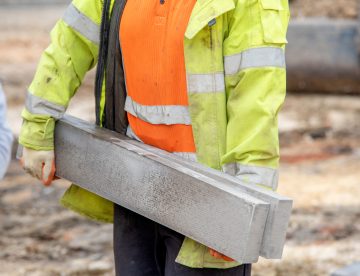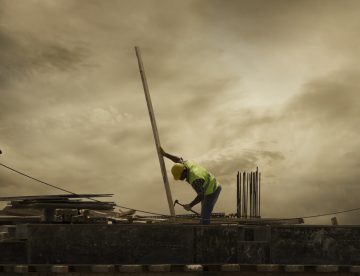
When working on a construction site, actions like lifting, bending, climbing and moving in awkward positions are often part of the everyday job. Because of that, it can be easy to think this kind of work is enough to keep you physically fit.
The fitness industry would disagree – arguing that when people who carry out physically demanding jobs also adopt a structured fitness programme, it can lead to better performance, reduce downtime and extend careers. Find out more about why fitness matters so much and download a sample programme in this week’s blog.

This week (10th – 16th June) is Men’s Health Week. Organised by the Men’s Health Forum, the week seeks to encourage all men to talk about and address any health concerns they may be experiencing.
When we think about health risks in construction, we usually consider things like physical injuries, musculoskeletal disorders or lung issues caused by exposure to dust and pollutants. But did you know that construction also has the largest burden of occupational cancer amongst the industrial sectors? Please read this week’s blog for some advice on what you can do to reduce the risks and/or catch cancer early.

Today marks the 75th anniversary of the NHS, known worldwide as one of the first and best healthcare systems to be universally available and free at the point of delivery.
Unfortunately, while its principles are unshaken, the NHS today is under pressure due to several issues – staff shortages, backlogs from Covid and industrial action to name a few.
Is there anything the construction sector can do to help? The answer actually is ‘yes’. Construction is high-risk industry for both injuries and health issues, but focusing on preventative measures can reduce those risks (consequently reducing some of the pressure on the NHS). Read on to find out more.

It’s fairly common for construction workers to question whether they need to follow an exercise regime, considering the fact that they already do a lot of physical activity in their daily work.
While it’s true that construction work involves a mix of low-intensity and heavier physical activity that might seem like a good workout, research has shown this doesn’t match the numerous health benefits that come from recreational physical activity. In this week’s blog, we’re taking a closer look at this topic.

Lifting and moving heavy objects are part of normal working life on construction sites but, when managed badly, these everyday tasks can lead to damaging musculoskeletal disorders that leave workers struggling to stand, walk or sit down. For some, the injuries result in them having no option but to stop working in the industry altogether.
Because the health of workers can be affected to such a serious degree, inspectors from the Health and Safety Executive will be carrying out 1000 site inspections in October and November, particularly checking how workers are moving heavy or bulky materials. Read on for more details.

While the generally drier weather of summer makes it one of the best times for completing construction works, every year the season also brings some additional challenges, for instance around maintaining the quality of products, the reduced availability of workers and specific heat-related safety risks. Of course, this year there are additional woes related to the pandemic and Brexit but in this week’s blog, we’re focusing on four areas of concern that sites face during a typical summer and included some guidance about what you can do to avoid or overcome those challenges.

A team of workers from Sheriff have recently spent their weekends improving the outside space at our office, creating a little sanctuary where staff can take a break and nature can flourish. The project has involved clearing away overgrown trees, shrubbery and debris from a stream that runs along the back of the office, as well as creating a small decking area and flower beds which have been seeded with a wild flower mix to support increased biodiversity. On top of this, almost all the materials used were reclaimed from our building sites, thereby saving them from landfill. Take a look at what we’ve done in more detail in this week’s blog.

Anyone involved in the roofing business will know that the job simply could not be done without frequently coming into contact with and using a range of products that are regulated by the Control of Substances Hazardous to Health (COSSH) Assessment.
While most dangers can be avoided by following the correct handling procedures, accidents do occur in the industry and so it’s really important that roofers know what to do in the event of a problem. Here’s a reminder of the appropriate First Aid measures required in relation to some of the commonly used COSSH substances.


